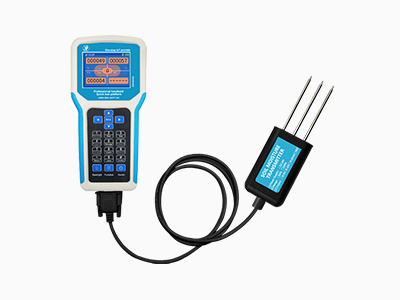Selecting the perfect soil sensor depends on your specific needs, the parameters you want to measure, and the application environment. Here are some common types of soil sensors and their features to help you choose the right one:
Types of soil sensors
Soil Moisture Sensors

Tensiometers: Measure soil moisture tension or suction.
Time Domain Reflectometry (TDR): Measure soil moisture content based on the dielectric properties of the soil.
Frequency Domain Reflectometry (FDR): Measure soil moisture content by analyzing the frequency response of the soil.
Capacitance Sensors: Measure soil dielectric permittivity to estimate soil moisture content.
Resistive Sensors: Measure soil resistance to estimate soil moisture content.
Soil pH Sensors:

Glass Electrodes: Measure soil pH based on the potential difference between the glass electrode and a reference electrode.
Field-Effect Transistors (FET): Measure soil pH based on the ion-sensitive field-effect transistor technology.
Soil Nutrient Sensors:

Ion-selective Electrodes: Measure specific ions (e.g., nitrate, ammonium, potassium) in the soil.
Conductivity Sensors: Measure soil electrical conductivity, which correlates with nutrient levels.
Soil Salinity Sensors:
Electrical Conductivity Sensors: Measure soil salinity based on the electrical conductivity of the soil solution.
Conclusion
When choosing a soil sensor, consider factors such as accuracy, precision, durability, ease of installation, data logging capabilities, compatibility with data loggers or monitoring systems. It is also important to ensure that the sensor is suitable for the soil type, moisture levels, and environmental conditions of the specific application site. Conducting a thorough assessment of your requirements and comparing the features of different soil sensors will help you select the perfect sensor for your needs.
